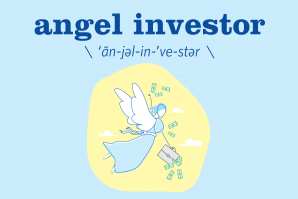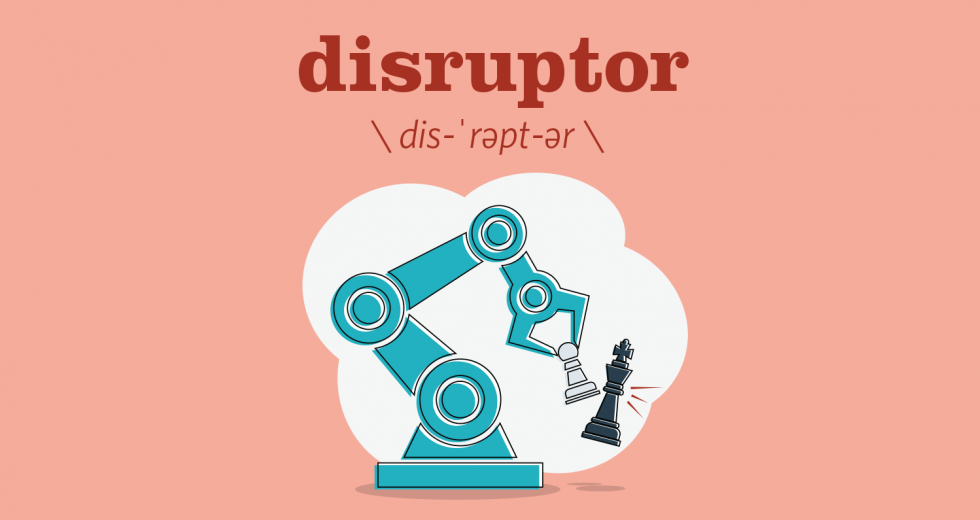In ordinary English, “disruptor” might conjure up images of a kid acting out in class, or someone holding up traffic. Among the startup set, though, disruptor has become one of the highest compliments one can receive — or give to oneself.
“The word ‘disruptive’ in the startup industry has a very positive connotation, but in the general public it doesn’t,” says Laura Good, cofounder of the accelerator StartupSac. In ordinary English, “disruptor” might conjure up images of a kid acting out in class, or someone holding up traffic. Among the startup set, though, disruptor has become one of the highest compliments one can receive — or give to oneself.
The current usage comes from the business theory concept “disruptive innovation,” coined in 1995 by Clayton M. Christensen and his collaborators. They defined disruption narrowly, reserving it for small companies that beat out competitors by catering to overlooked market segments. In 2015, at the height of the word’s buzz, Christensen took to the Harvard Business Review to chastise what he saw as the misuse of his coinage. “If we get sloppy with our labels, … then managers may end up using the wrong tools for their context, reducing their chances of success,” he warned.
The Buzz
“Every startup I work with likes to say that they’re disrupting,” says Good, whose organization connects Sacramento-region startup founders with information, investors and each other. While she considers many of her partner startups innovative, she hesitates to call any of them disruptors. “It takes time to really be able to say that (an innovation) is disruptive,” she says.
Good says startups like the label because they imagine it will attract investors who are holding out for the holy grail: a company that will create and lead a new market. Often, these startups will pitch themselves as reinventions of well-known disruptors, say the Netflix of training modules or the Airbnb of parking. Risk aversion is a common trait among investors, though; some won’t want to gamble on a startup that doesn’t have a proven market.
The Word
Louis Stewart, the first chief innovation officer of the City of Sacramento, sees a lot of self-styled disruptors through his work with the city’s Demonstration Partnership Policy. He says the public sector’s ability to encourage widespread adoption of a technology can help these startups reach their disruptive potential. “Companies should not necessarily look at government and regulation as bad, but look for opportunities to enhance the lives of the citizens through evidence-based policy work,” he says.
Stewart, also a member of Comstock’s Editorial Advisory Board, pointed to Japa, a Davis-based smart parking startup, as an example of a local company with disruptive potential. Japa CEO and cofounder Mathew Magno imagines a future where cities will mandate new parking constructions to incorporate Japa’s wireless sensors and real-time analytics into every space, disrupting the traditional parking industry. Magno doesn’t call himself a disruptor, though. “We like to let our product speak for itself,” he says.
—
Discuss this story and others on our Facebook page; “like” Comstock’s on Facebook by clicking or tapping here.
Recommended For You

Buzzwords: Angel Investor
An affluent individual who invests their own money, independently of a firm, in an entrepreneurial company.
Investors — aside from having a propensity for ostentatious cars — can play a key role in a startup’s success. Beyond a financial contribution, they can have an affect on other facets of the business too.

Buzzwords: Silo
A part of a company that works in isolation from others, making for a culture of limited communication
Silos can be formed when making sure employees’ time is spent only on their expertise or when everyone in the company is so busy they feel they don’t have time to reach beyond their domain.

Buzzwords: Talent Brand
An employer’s public-facing identity that reflects what it’s like to work at the company
Although companies may try to appear glossy and appealing on that platform, it can still be informative to gauge the company’s values, perks and just how genuine the smiles on employees’ faces may be.

Buzzwords: Activation
The art of driving consumer action through brand interaction and experiences
For advertising to be effective and resonate with its intended audience, it must strike an emotional chord. Activations take this one step further by immersing the consumer in an experience that’s often sensorial or physical.



